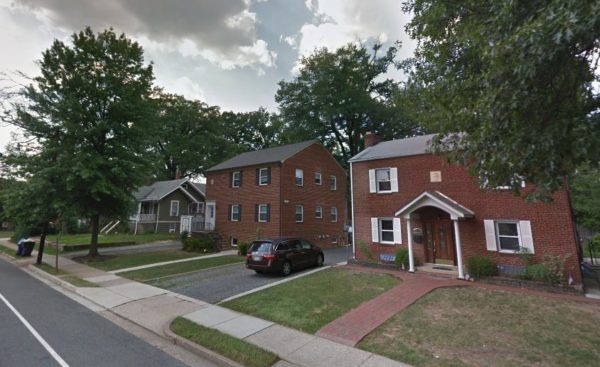(Updated at 11:35 a.m.) Could legalizing duplexes and triplexes in certain areas be a way to provide more affordable, middle-income housing in Arlington?
That’s what Arlington County will trying to determine with a new “Missing Middle Housing Study.”
In announcing the study, the county pushed back on the assertion — made by some activists — that it was looking to eliminate single-family zoning entirely, as was done in Minneapolis. Instead, county staff said that “neither an across-the-board rezoning, nor an elimination of single-family zoning, would be the right fit for Arlington.”
The study will explore whether allowing more types of housing could “address the shortage of housing supply in Arlington” and will determine where the new housing types could be allowed so as to be “compatible with existing neighborhoods.”
The study — part of the overall Housing Arlington initiative — is expected to begin in 2020.
Meanwhile, a statewide missing middle housing bill has been proposed. HB 152, introduced in the Virginia House of Delegates by a Northern Virginia legislator, proposes requiring “all localities to allow development or redevelopment of ‘middle housing’ residential units upon each lot zoned for single-family residential use.”
The press release on the Arlington County housing study is below, after the jump.
The County Manager yesterday reviewed with the County Board a framework for the Missing Middle Housing Study, which is anticipated to begin in 2020. The study is under the Housing Arlington umbrella and will explore if and how missing middle housing could help address Arlington’s limited housing supply and inadequate housing choices.
Missing middle housing types–such as duplexes and triplexes–are currently restricted in many neighborhoods by Arlington’s land use policy and Zoning Ordinance. Barriers to building them make it difficult to increase the County’s housing supply and provide more choices at a broader range of prices.
“We look forward to a robust, thoughtful conversation with the community about missing middle housing, and whether and how this type of housing might work for Arlington,” Arlington County Board Chair Christian Dorsey said. “The community will be involved from the beginning, helping determine the scope and charge for this study, and there will be several months of engagement and discussion before any specific proposals emerge.”
Growth and housing supply, a regional issue
As the demand for housing increases across the region, the real estate market is not meeting the needs of residents. From the County’s 2018 Big Idea Roundtables, and recently during the Housing Arlington Community Conversation Series, it was clear that Arlington residents are frustrated by rising housing costs and lack of housing choices. Examining opportunities to diversify Arlington’s housing stock was identified in the County’s 2015 Affordable Housing Master Plan, where objectives and policy directives provided specific direction to address missing middle housing.
Planning is just getting started
The Missing Middle Housing Study is envisioned in three phases that will kick off in the second quarter of 2020.
Starting from a blank slate with no proposed policy or zoning changes, a County-led team will use inclusive public engagement, a cross-disciplinary team of experts, extensive data collection and analysis, and an iterative design process to create study recommendations for the Board to consider. In addition to establishing a shared definition for the term missing middle, the study aims to:
- Determine if, and how, new housing types can help address the shortage of housing supply in Arlington;
- Locate where new housing types could be compatible with existing neighborhoods; and
- Identify what strategies could be employed to mitigate any negative impacts.
County staff’s report to the County Board emphasized that neither an across-the-board rezoning, nor an elimination of single-family zoning, would be the right fit for Arlington. Policies and regulations will be informed by community recommendations to advance the County’s vision for equity, diversity, inclusion and creating a biophilic, resilient community. Solutions will need to be context-sensitive–not a one-size-fits-all approach.
Next steps include preparing a detailed scope of work, study charge, and engagement plan which will be reviewed with advisory boards and commissions and the broader community. […]
About Housing Arlington
Arlington is a desirable community and benefits from an evolving economy and growing population. However, as housing demands have increased, pressures on the regional and local housing market have intensified, causing shortfalls in housing supply, fewer options in housing types, and rising housing costs. These are regional issues that will require regional solutions.
To locally address this challenge, the County Board established an umbrella program, Housing Arlington, in March 2019. Working beyond traditional policies and programs, Housing Arlington takes a proactive, expanded approach to reach an equitable, stable, adaptive community. Over several years, the program will generate holistic housing solutions through planning and implementation tools, housing policy, financial resources, and innovative local and regional public-private partnerships.
In October and November 2019, Housing Arlington hosted three virtual dialogues about the intersection of housing with other communitywide issues: economics, the environment, and equity. Key takeaways from each conversation highlight challenges, considerations, and ideas for solutions.
Photo via Google Maps


